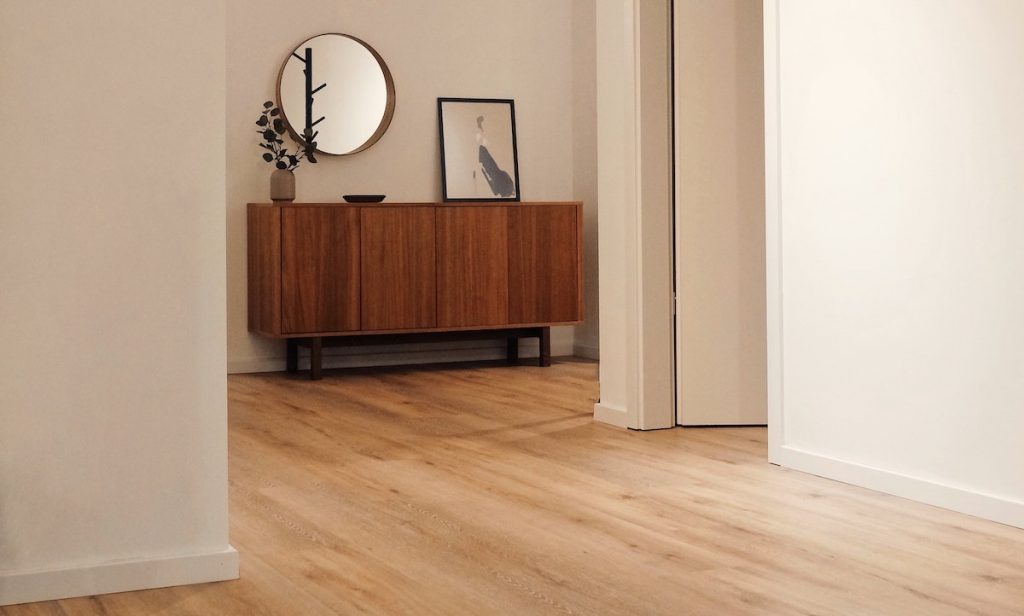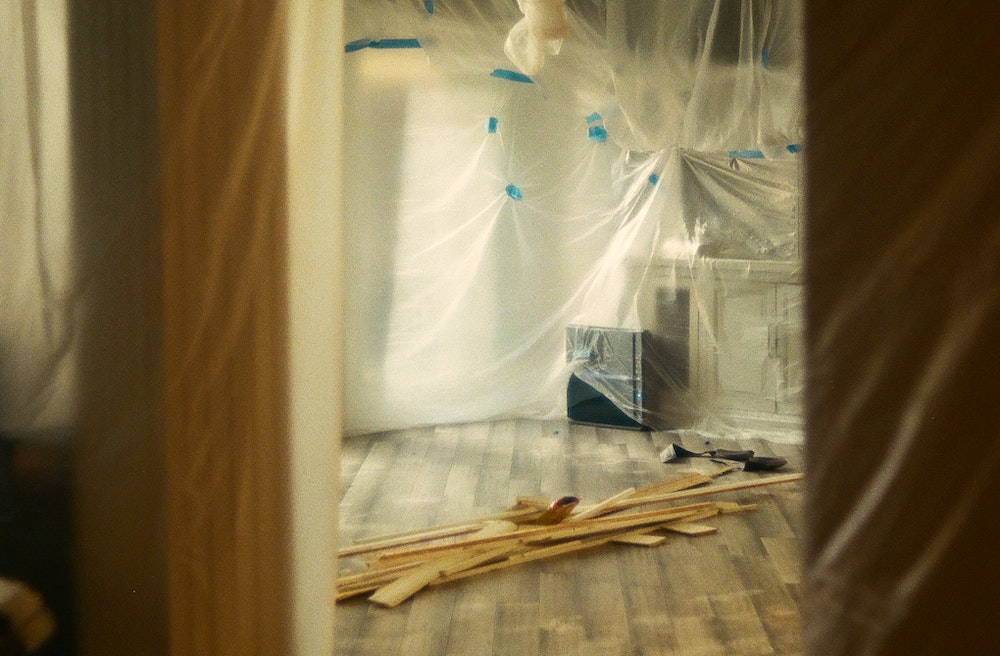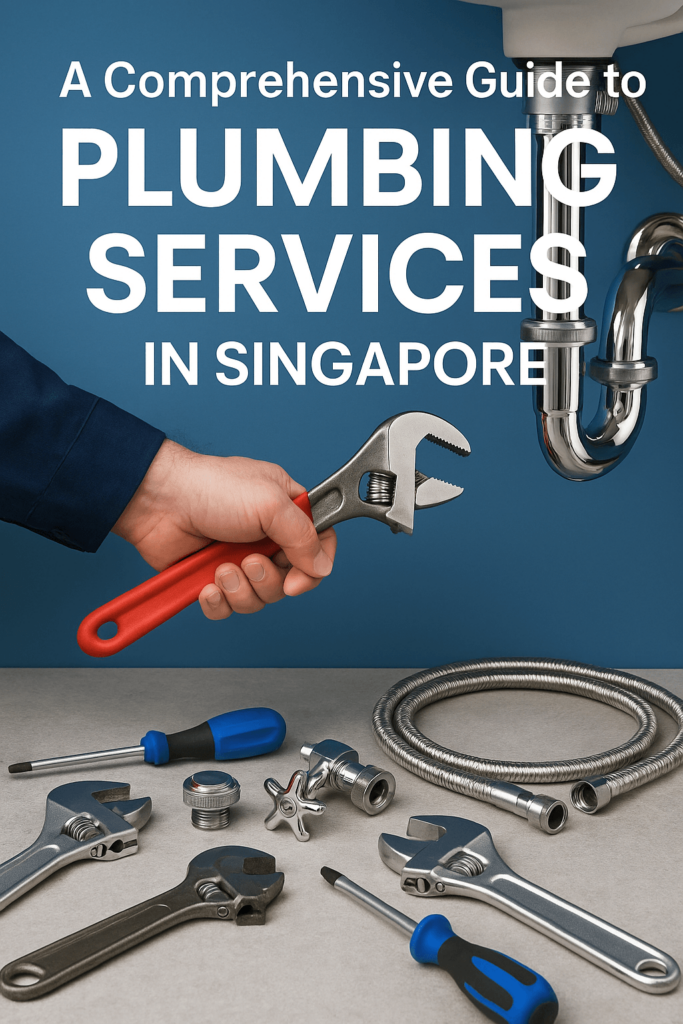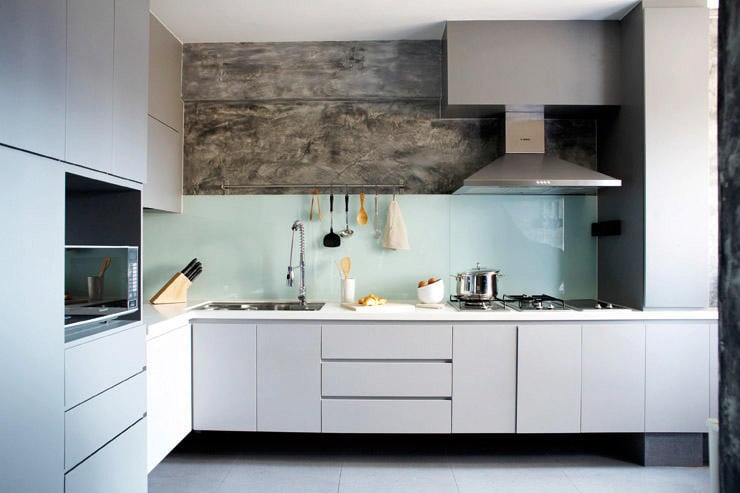
Homees provides a directory of companies that specialise in the installation of vinyl flooring. When deciding the material for your floors, you would need to take note of pricing, quality, style, design, etc. Hence, to aid you in your decision, we recommend a few of the best-reviewed vinyl flooring services in Singapore.
Vinyl Flooring Cost & Estimation Calculator (in Singapore, 2024)
Here is a flooring and tiling cost calculator for you to estimate the cost of your project.
(This calculator is currently in beta phase, all prices are estimated.)
11 Best Vinyl Flooring Companies In Singapore (Our Top Picks)
Companies | Services | Address | Ratings |
Homees Concierge Service | Homees Concierge Service Team - tell us what you need and we'll help get it solved. Talk to us today by giving us a call or Whatsapp us now. | 994 Bendemeer #03-04 Singapore 339943 | Average Rating: 5/5 |
NBL Express - Eco Flooring Pte Ltd | - Linoleum Flooring | 536 Balestier Road Singapore 329861 | Average Rating: 5/5 |
Wallhub | - Carpet Flooring | #01-38, Oxley BizHub 2, 62 Ubi Road 1, S408734#01-10 (L1 & 2) Nordcom II, 2 Gambas Cres, S757044 (Free Parking) Singapore 408734 | Average Rating: 5/5 |
Jestac | - Vinyl Flooring | 2 Kim Chuan Drive #02-06 CSI Distribution Centre Singapore 537080 | Average Rating: 5/5 |
Reno Guys Pte Ltd | - Texture Painting | 71 Woodlands Ave 10 Woodlands Industrial Xchange #07-18 Singapore 737743 | Average Rating: 5/5 |
Vohringer Laminate & Vinyl Flooring | - Vinyl Flooring | Blk. 3014A, Ubi Road 1, #06-09 Singapore 408703 | Average Rating: 5/5 |
Paramount Construction | - Electrical Wiring | 2 Yishun industrial st 1 North Point Bizhub #08-14 Singapore 768159 | Average Rating: 5/5 |
365 Furnishing | - Vinyl Flooring | 201 Henderson Road #04-15/16 Apex @Henderson Singapore 159545 | Average Rating: 5/5 |
Goodhill Flooring & Decking | - Artificial Grass | 9 Sungei Kadut Street 5 Singapore 728956 | Average Rating: 5/5 |
Laflor Living | - Floor Repair | 261 Kaki Bukit Ave 1 Shun Li Industrial Park Singapore 416065 | Average Rating: 5/5 |
Floor Deck Specialist Pte Ltd | - Balcony Blinds | 50 Tagore Lane, #05-01A Entrepreneur Centre, Singapore 787494 | Average Rating: 5/5 |
Ecopluz Pte Ltd | - Parquet Flooring | #01-39 Enterprise One 1 Kaki Bukit Road 1 Singapore 415934 | Average Rating: 5/5 |
Hire Vinyl Flooring Services In Singapore
View All Vinyl Flooring Companies
Looking for a rather affordable flooring option for your home that is not only elegant and beautiful but offers you a variety of design and colour options as well? If yes, then vinyl flooring might just be what you need.
Cost Of Vinyl Flooring In Singapore
|
Vinyl Sheets and Tiles Materials: $1.50 to $8 psf |
HDB BTO Packages: 2-Rooms: $1200 – $1500+ 3-Rooms: $1600 – $1800+ 4-Rooms: $2200 – $2300+ 5-Rooms: $2900+ Other Prices specifically for 3mm vinyl flooring: HDB Living Rooms: $1200-$2000+ 2 Bedrooms: $1500+ 3 Bedrooms: $1770+ |
Price may vary based on the thickness and type of vinyl flooring (usually 3mm and 5mm, but the range can be between 0.7mm and 8mm) Prices mentioned may not include labor costs and is dependent on the project There may also be additional costs if you want old/previous flooring to be removed |
What Is Vinyl Flooring?
Vinyl flooring is a type of synthetic flooring that provides great benefits and it is extremely versatile. It is somewhat similar bares similarities to linoleum flooring and is considered one of the most popular choices in wet areas such as bathrooms and cooking areas.
They are made of polyvinyl chloride (PVC) along with a few other compounds added to allow them to have the desired hardness, whilst still being flexible. The top layer is made up of a urethane-based coating. It provides durability and stability because of its water-resistant and stain-resistant properties. In recent times, companies have been trying to improve the safety and econ-friendliness of vinyl floorings by using materials that are organic and do not emit harmful chemicals.
Improvements over the years have resulted in a variety of attractive, economical, and affordable that give you countless ways to fit your choice to other elements of your interior design. Now, there are newer and improved versions, which include luxury vinyl tiles (LVT) and luxury vinyl planks (LVP). They come under the umbrella term called luxury vinyl flooring (LVT). It has many variations, which include dry back (waterproof and has thermal stability), loose lay (no need for adhesives due to the heavy back of fibreglass) and PVC click (utilizes a click system).
Another type lesser-known type is known as vinyl composition tile (VCT) which contains limestone powder to increase its durability. It contains lesser amounts of vinyl, but in the long run, it requires higher and more continuous maintenance.
How Much Does Vinyl Flooring Cost In Singapore?
The average price of vinyl flooring in Singapore is around S$1.50 to S$6 per square foot. Usually, the thickness may vary (3mm to 5mm) and this could affect the cost of your tiles. Vinyl flooring is one of the cheapest floorings you can find on the market. Having a life span of around 10- 20 years, they are a viable option to choose when on a budget.
What makes Vinyl Flooring so popular and unique?
Let us take a look at why vinyl flooring is in demand – not only in housing areas but in commercial and industrial places as well.
1. Tuff Shield technology.
Vinyl flooring has a top layer of protection formed by Tuff Shield technology. This technology serves to safeguard the vinyl floor and allow it to resistant to scratches. This contributes to the vinyl flooring’s durability and allows it to maintain its longevity for a long time
2. Dimensional Stability
Now, let’s delve into the insides of the vinyl flooring. The middle layer provides the stability that allows for the installation of the flooring.
This dimensional stability is what helps the material to retain its original shape, especially when it has been subjected to harsh environmental changes,
3. Locking Mechanism for ease of installation
Lastly, the locking mechanism that the vinyl planks have allows for the flooring to stay locked against each other when it has been installed. This prevents it from opening up or for moisture to seep into the flooring quickly, making it highly durable, and water-resistant.
Types And Varieties Of Vinyl Flooring
Vinyl comes in different types, designs, colours, and textures. You have a wide variety of options in vinyl flooring when it comes to its visual appearance ranging from wood to ceramic-look floors. Some options have textures that mimic that of wood and even stone!
These different designs are available in a variety of colours and textures to match countless types of interior design. Vinyl flooring comes in three main types which are further described in the following sections:
Vinyl Planks
If you want the appearance of a hardwood floor, then vinyl planks are the choice for you. Vinyl plank floors mimic real hardwood floors because of their deep texture and richness. They have various finishes and colours for you to choose from, depending on what type of wood you are intending to mimic.
In comparison to laminated flooring, vinyl planks are smaller in size and thickness and are usually installed using the glue-down approach, similar to that of vinyl tiles. Planks of vinyl are usually installed over a layer of foam core that helps give the floor its rigidity and strength.
This foam core helps to absorb shock and minimizes sounds while walking. Vinyl planks can be installed easily on various types of existing floors including concrete, tile, and wooden floors. This type of vinyl floor adds comfort and warmth to interior living spaces. Furthermore, they are suitable for areas that would naturally be in contact with moisture (e.g. toilets and kitchens).
Look for Other Flooring Services
Vinyl Sheets
Vinyl sheets are much wider and bigger than vinyl planks and come in the form of rolls that are either 6 or 12 feet wide. They tend to be the thinnest type of vinyl floorings – ranging from between 2mm to 3mm. They can be found in a variety of colours, textures, and patterns so they do give you a variety of design options.
These sheets have a fibreglass core that does not allow them to expand or contract, thus helping them to retain their original quality are without cracking or rolling. They are highly water-resistant, so you can effectively use them in the bathrooms and kitchen.
Vinyl sheets are widely used for commercial purposes. This is because they are strong enough to be resistant to abrasions, which a heavy flow of traffic tends to cause.
Vinyl Tiles
If you want to achieve a ceramic-tile look in your house at an affordable cost, then vinyl tiles are especially suited to you. Vinyl tiles come in 9”x9” or 12”x12” sizes. Since they are constructed by fusing multiple layers of same-coloured vinyl, it makes them sturdier and more durable.
Vinyl tiles are a popular option for those who want a cheaper alternative to materials for example marble, granite, or other stone-like patterns because they can be used to emulate these patterns for a classic look.
Some types of vinyl tiles have their top layer covered with vinyl paint and a protective coating to increase their life and undertake more wear and tear.
Does the thickness of vinyl flooring make a difference?
Different living areas in the house would naturally have varying levels of human traffic. This will affect the depth of your tiles. Contrary to popular belief, thicker flooring may not necessarily correlate to the increased durability of vinyl flooring!
The thickness of the wear layer and vinyl needs to be considered. Usually, for areas with lower human traffic (e.g. bedrooms), a thickness of 2mm to 4mm will be suitable. In areas like the living room, a thicker vinyl layer may be more suitable (4mm to 6mm). The wear layer determines the durability. However, walking may be more comfortable for users if the wear layer is thinner!
How To Install Vinyl Flooring

The installation of vinyl flooring is fairly simple which you can easily do at your home. However, patience and meticulous work is needed since you have come up with the pattern and cut the sheets according to the room dimensions.
If it is not properly installed, the vinyl floor may get damaged beyond repair. As such, it is always better to have a professional install vinyl flooring for you.
The floor has to be completely smooth, otherwise, the bumps and indentations on the floor will show up on the vinyl flooring. This is especially common for thinner types such as vinyl sheets, where the unevenness is more pronounced. So, you have to be careful of these elements while installing the vinyl flooring to avoid improper installation.
Depending on the type of vinyl flooring being used, the installation process may differ slightly. These different types of vinyl installations are described below
- Vinyl sheets with a felt-backed layer can be installed on the floor with an adhesive or glue. You can glue it by using highly adhesive glue so that it gets installed permanently. If you want to remove the vinyl sheets and re-use them at a new house maybe, it is better to use a common adhesive that can easily be peeled off when you want to remove the vinyl sheets.
- A peel-and-stick type of vinyl flooring is easy to install. The sheets or planks in such vinyl flooring have an adhesive backing and can easily be glued to the floor.
- The type of loose-lay vinyl sheets that have fibreglass backing does not require any adhesive during installation.
After installation, a topcoat is applied to the vinyl floor to prevent stains, scrapes, and dents with use. This wear layer can be of different thicknesses depending on what amount of protection you want to give to the vinyl floor. There can be three different kinds of wear layers for your vinyl floor: - A no-wax vinyl coating is quite economical and helps make the vinyl floor shiny without polishing or buffing it. It has stain-resistant properties that help to maintain the new look of vinyl flooring. Over many years.
- A urethane coat is a relatively expensive form of coating compared to a no-wax vinyl. It is stain-resistant, durable, and easy to against scuffing and allows the vinyl floor to retain its sheen for a longer time without polishing or buffing.
- The enhanced urethane coat is probably the most expensive of all the different types of vinyl coating. Expectedly so as it provides the greatest durability and scratch-resistance to the floor. It is stain-resistant and can resist stubborn scuffs and scratches effectively allowing the vinyl floor to retain its shine for the longest period of time.
Find Tile Grout Cleaning Services
How To Clean And Maintain Vinyl Flooring
There are a few easy cleaning and maintenance tips that you can adopt to keep the vinyl floor shiny, clean, and good-as-new for a long time. Since most vinyl floors have a clear wear layer that protects them from common stains and dirt, it is relatively easy to clean the floor yourself on a regular basis.
Of course, it will always be easier if you engage a floor cleaning company to do it for you. However, if you feel like DIY-ing or saving some money, below are a few cleaning and maintenance tips that can be helpful:
- Sweep, dust, or vacuum your floor daily to prevent the collection of dust or other particles on the floor for long periods.
- After sweeping and dusting, mop the floor with a damp cloth. If you want to use store-bought floor cleaners, be sure to use the one which is PH-neutral. Do not use cleaners that are oil-based or those that contain wax which may damage the flooring.
- Although most vinyl flooring is water-resistant, it can still affect the shine and polish of the floor if the water is left on it for long periods of time. Therefore, remove moisture present on the vinyl and don’t let it stand there for a long time. Similarly, this can be applied to other liquids and even excretion from your dearest pets!
- For tough stains that won’t go away with a damp cloth, use a mild soap that has been designed for your floor. Read the maintenance instructions that come with your vinyl flooring to ensure that only the right types of soaps and cleaning solutions are used for cleaning.
- If a heavy object is dragged on the vinyl flooring, it can permanently scratch the floor. Hence avoid dragging all kinds of furniture and kids’ toys. Always add flat floor protectors for all types of furniture legs to avoid this problem.
- If you have a pet, make sure that its nails are trimmed and blunt to avoid scratches on the vinyl floor.
- You might want to avoid using any harsh chemical agents to clean your vinyl floor. The chemicals in your cleaner might destroy and remove the top protective layer, over time, destroy your floor.
Read also: Vinyl Vs Laminate Flooring: Their Pros and Cons
Pros and Cons Of Vinyl Flooring
Pros
- Vinyl is cheaper in comparison to wood, marble or stone
- Vinyl flooring can easily be cleaned and requires minimum maintenance. You can just clean it daily with a broom followed by a damp mop to keep it in good condition.
- Vinyl flooring is extremely water-resistant. Therefore, you do not need to worry about water or liquid spills even if it remains on the floor for a long period. You can easily wipe it off and the vinyl won’t be damaged. Staying in a place like Singapore where the humidity can be quite high, vinyl flooring is a good choice due to this water-resistance property. Vinyl flooring provides a softer texture floor when you walk on it barefoot.
- Vinyl flooring is considered more hardy and durable that can last for years if it is maintained properly.
- Vinyl flooring is highly stained resistant thanks to its wear layer that protects the vinyl flooring from staining after spills.
- Vinyl flooring can easily be installed without any professional help.
Cons
- Vinyl flooring can get permanent marks and indentations from heavy furniture. If a heavy or pointed object is dragged across the vinyl floor, it can cause permanent marks.
- If a vinyl tile or sheet gets damaged, it cannot be repaired and you will have to replace it with a new one.
- Although there are more environmentally friendly alternatives, it is still made up of plastic and still may not be biodegradable.
- Newly installed vinyl flooring can cause VOC gas emissions which can be harmful to people with respiratory problems and allergies.
- It has to be installed on a completely smooth floor since even a small bump or indentation will be visible through the vinyl floor. This bump can even cause the vinyl to crack or get damaged further.
- It may fade or become yellowish with time and in direct sunlight. As such, it is not suitable for outdoor usage as constant sunlight exposure can cause it to discolour quickly.
- Vinyl flooring is susceptible to chemical stains when it comes in contact with rubber. Contact with rubber. This may lead to the discolouring and tarnishing of the flooring.
Undoubtedly, vinyl flooring is one of the most economical yet modish and elegant types of flooring which you can use for your interiors. It gives you a comprehensive selection of styles, colours, and textures to choose from.
If you keep a few cleaning and maintenance tips in mind, you can rest assured that the vinyl floor will last for years to come.
Frequently Asked Questions (FAQs) About Vinyl Floors
Why use vinyl flooring?
Vinyl flooring is a versatile and durable flooring option that gives you the appearance of a wood floor at a much more reasonable price. It comes in a variety of colours, designs, textures, and types. It is highly water-resistant, easy to clean and manage, and can last for years if maintained properly.
What is the difference between vinyl and laminate Floors?
Vinyl is a synthetic flooring material that is highly water-resistant, easy to maintain, and a cheap flooring option. Laminate flooring is a thin pressed wood floor with a photographic wood image protected with a clear wear layer. Unfortunately, it is not water-resistant but is easy to clean and maintain. Instead, laminate is slightly cheaper than luxury vinyl tiles.
We’re here to improve your home
Speak to hundreds of reliable pros, view their gallery, inspirations, and know the best prices with our resources.
Have full control over your home improvement projects with Homees.





